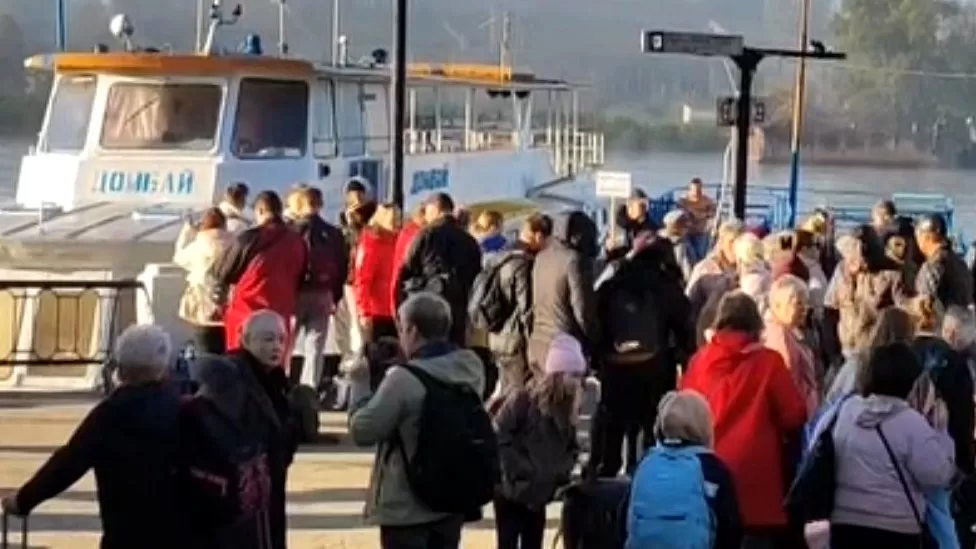Russian Defence Minister Sergei Shoigu on Wednesday ordered his troops to withdraw from the occupied Ukrainian city of Kherson and take up defensive lines on the opposite bank of the River Dnipro, according to a Reuters report.
In televised comments, General Sergei Surovikin, in overall command of the war, reported to Shoigu that it was no longer possible to keep Kherson city supplied.
“Having comprehensively assessed the current situation, it is proposed to take up defence along the left (eastern) bank of the Dnipro River,” said Surovikin, standing at a lectern and indicating troop positions on a map whose details were greyed-out for the TV audience.
“I understand that this is a very difficult decision, but at the same time we will preserve the most important thing – the lives of our servicemen and, in general, the combat effectiveness of the group of troops, which it is futile to keep on the right bank in a limited area.”
The news followed weeks of Ukrainian advances towards the city and a race by Russia to relocate more than 100,000 of its residents by ferrying them to the opposite side of the river, the Reuters report said.
Kherson is the main city of the region of the same name – one of four Ukrainian regions.
A BBC report cited a Russia-installed local leader as saying tens of thousands of civilians and Russian-appointed officials are being moved out of Ukraine’s southern Kherson region ahead of a Ukrainian offensive.
Vladimir Saldo said all Russian-appointed departments and ministries would cross the Dnieper river.
Some 50-60,000 civilians would also leave in an “organised, gradual displacement”, he said earlier.
Ukraine has called on residents to ignore the Russian move.
The head of Kherson’s regional administration said Russia wanted to take civilians hostage and use them as human shields.
In a separate development, Russia’s Vladimir Putin said he had signed a decree imposing martial law on four Ukrainian regions, including Kherson.
He told Russia’s Security Council that it would give regional leaders additional powers to maintain social order and safeguard important facilities.




















